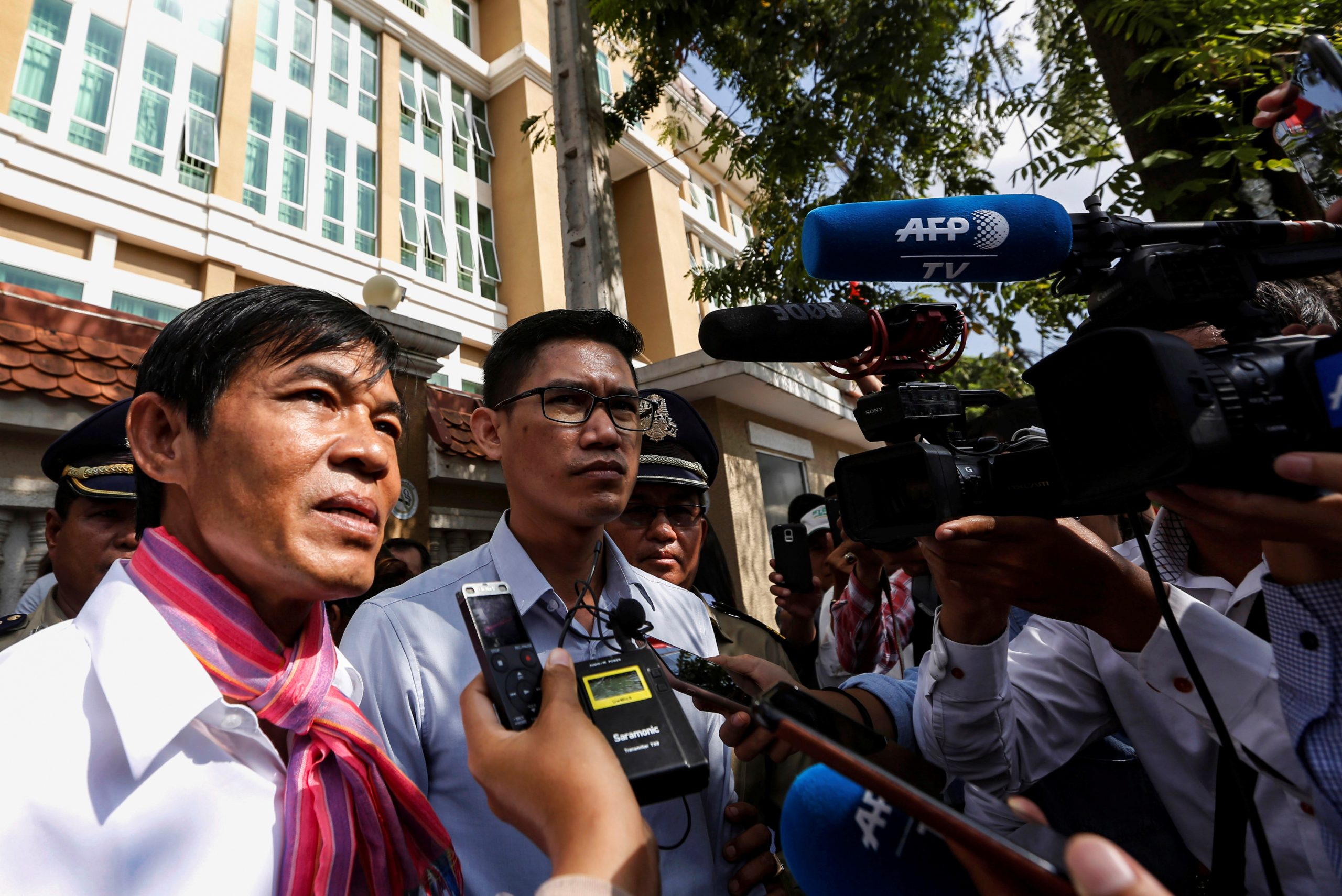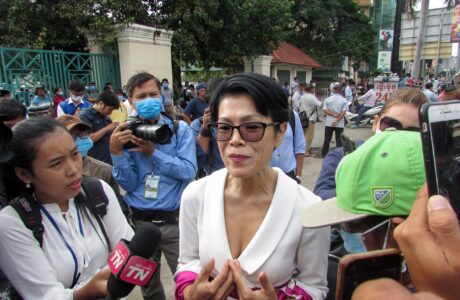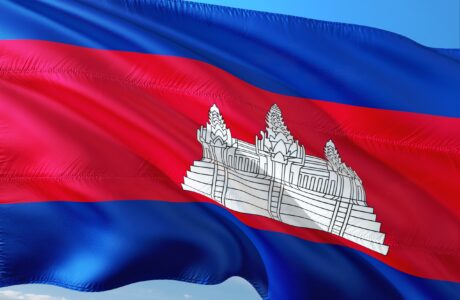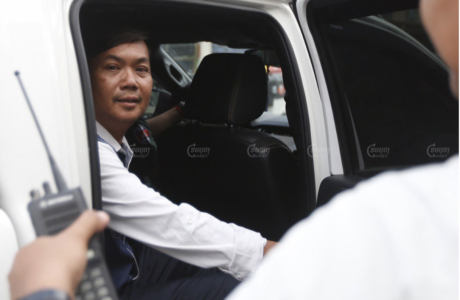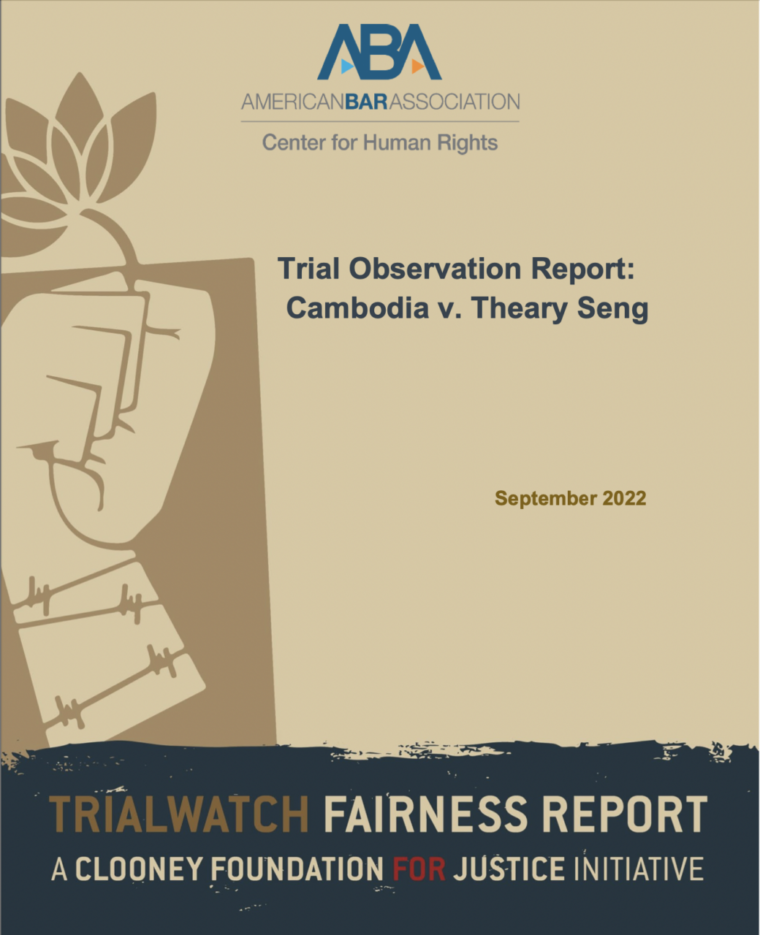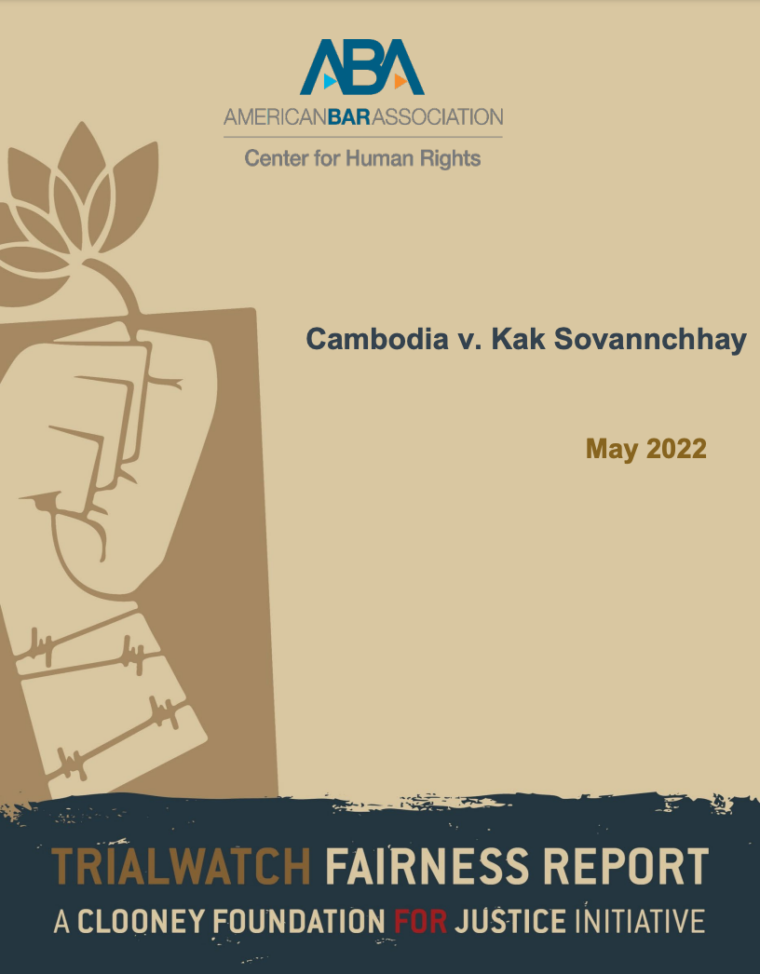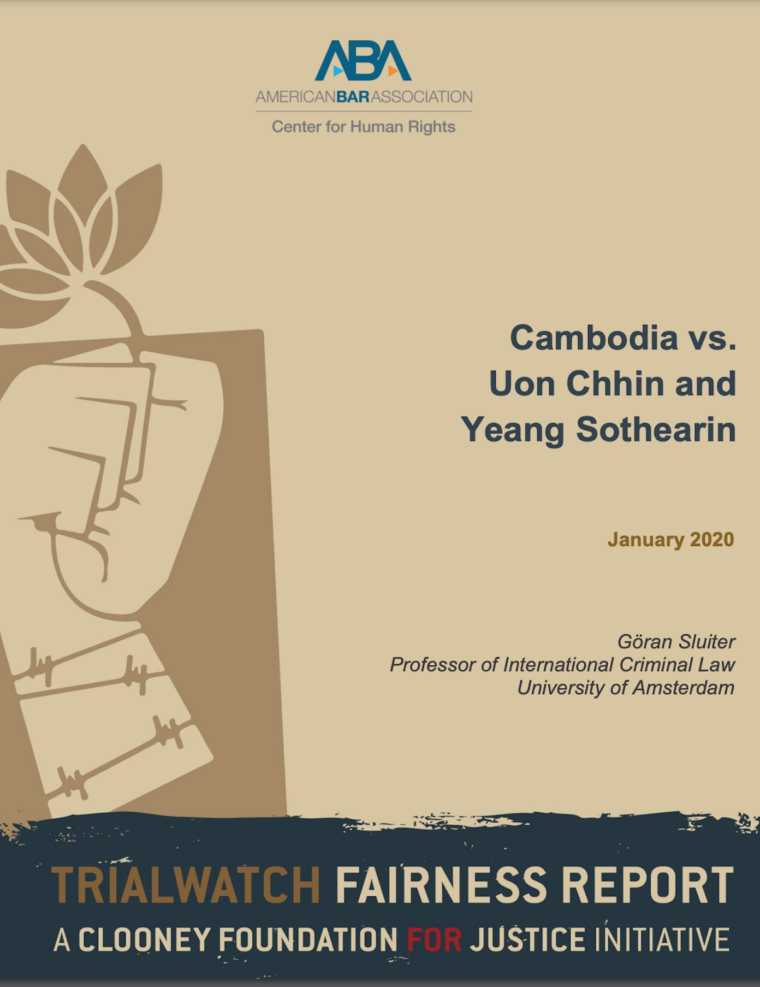In Cambodia, a vague law criminalizing ‘incitement to disrupt social order’ has become one of the government’s tools of choice to silence anyone critical of Prime Minister Hun Sen.
On behalf of TrialWatch, our partner the American Bar Association Center for Human Rights has monitored four trials under this law. We even challenged the law before the UN Working Group on Arbitrary Detention, which found that it was incompatible with international human rights standards.
It is not the only law being used to silence speech and opposition in Cambodia. TrialWatch also monitored the case of two Radio Free Asia journalists charged with espionage and we are tracking increased criminalization of dissent in the leadup to the 2023 general elections.
